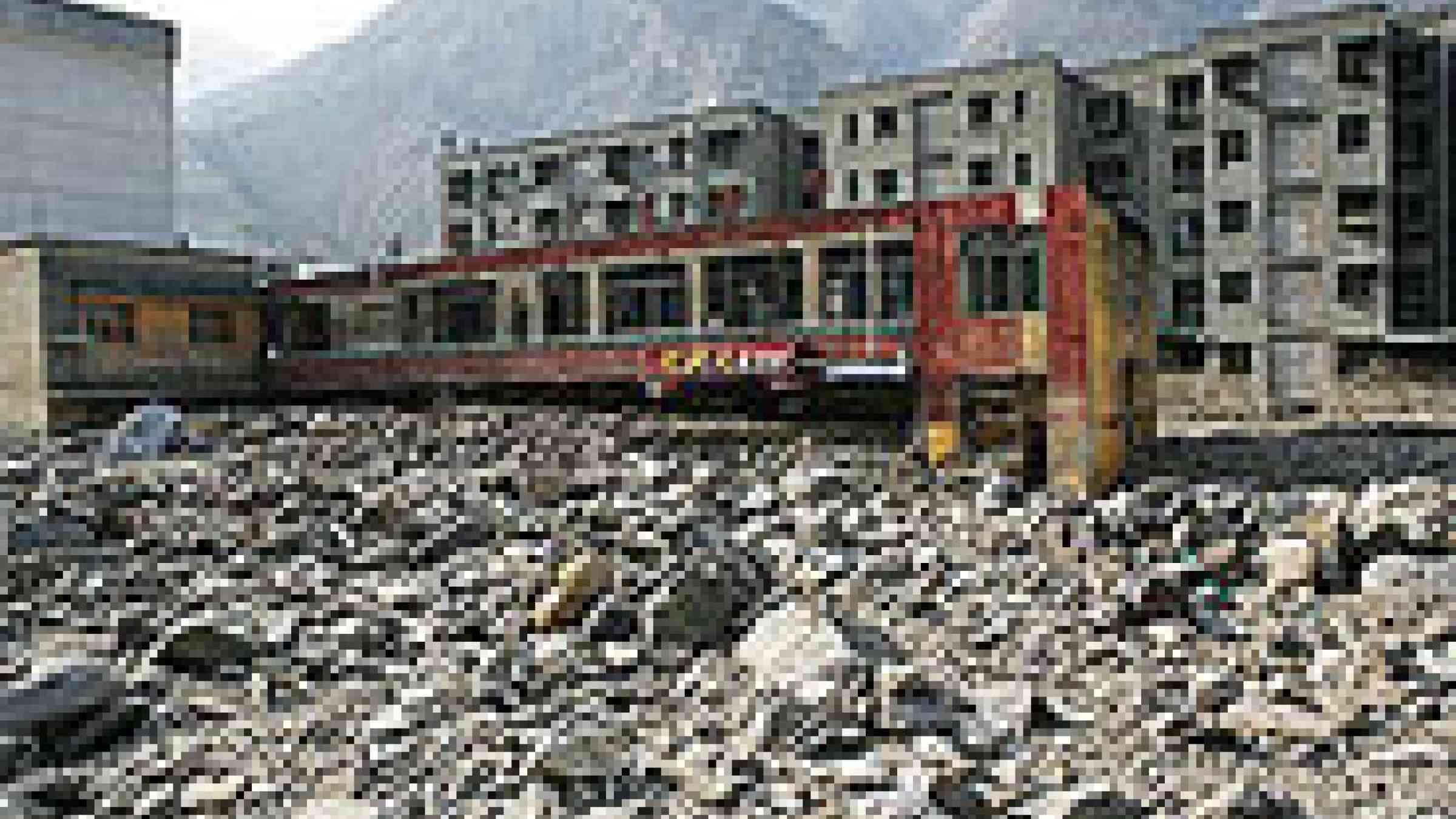'Unprecedented disasters are threatening economic recovery' UNESCAP

UNESCAP press release No: G/25/2011
Unprecedented disasters are threatening economic recovery and need regional response, ESCAP tells Asia-Pacific countries
Bangkok – An increase in extreme weather events and unprecedented natural calamities have set back Asia-Pacific economic recovery and development gains and require a joint regional response, the United Nations told a meeting of 31 countries here today.
Ministers and senior officials and 22 international organizations working in one of the world’s most disaster-prone regions are meeting in Bangkok from 29 June to 1 July at the Second Session of the Committee on Disaster Risk Reduction to discuss a regional strategy to minimize the human, environmental and economic impact of disasters.
“This session takes place at a time when the region is yet to fully recover from the external shocks from the global financial crisis, and disasters contribute to aggravation of the situation and undermine the region’s efforts to achieve the Millennium Development Goals,” Acting Deputy Executive Secretary of the United Nations Economic and Social Commission for Asia and the Pacific (ESCAP), Mr. Nagesh Kumar told the Committee.
The spate of disasters in many countries over the past year have affected the food security situation, further aggravating the rising food prices, he added.
Inaugurating the Session, Thailand’s Vice-Minister of Foreign Affairs, Mr. Suangsan Jamornchan noted that the meeting was “very timely” as the Asia-Pacific region “continues to suffer disproportionately from natural disasters”.
“The impact of natural disasters upon social and economic development in the region cannot be left out of our agenda,” the minister said.
Mr. Jamornchan welcomed the preparation of the first Asia-Pacific Disaster Report jointly by ESCAP and the Inter-Agency Secretariat of the International Strategy for Disaster Reduction (UNISDR) on the recommendation of the First Session of the Committee in 2009.
According to the report, the region has suffered 85 per cent of deaths and 38 per cent of global economic losses due to disasters during 1980-2009. Nearly 90 per cent of all people affected by disasters in 2010 were living in Asia. A common feature of the region is the high concentration of populations in seismically active areas. The 2009 earthquake and tsunami in Samoa derailed the Pacific island nation's graduation to middle income country status.
During the Committee, a high-level panel of senior Government delegates will share insights on emerging trends in disasters and their socio-economic, development and environmental aspects. A special presentation on challenges and lessons learned at the aftermath of Japan’s devastating earthquake and tsunami of 11 March 2011 will also be held.
Another high-level panel of Government delegates tomorrow will discuss mainstreaming innovative information and communications technology in disaster risk reduction.
Representatives of Afghanistan, Australia, Bangladesh, Bhutan, Brunei Darussalam, Cambodia, China, India, Indonesia, Islamic Republic of Iran, Japan, Lao PDR, Malaysia, Mongolia, Myanmar, Nepal, Pakistan, Philippines, Republic of Korea, Russian Federation, Samoa, Solomon Islands, Sri Lanka, Thailand, USA and Viet Nam are attending the Session.
Observers from Austria, Czech Republic, Republic of South Africa, Romania and Spain are also present.
For further information, please contact:
Ms. Francyne Harrigan
Chief, Strategic Communications and Advocacy Section, ESCAP
T: (66) 2 288 1052
M: (66) 81 835 8677
E: harriganf@un.org
Ms. Thawadi Pachariyangkun
Public Information Officer, ESCAP
T: (66) 2 288 1861; M: (66) 81 634 3876
E: pachariyangkun.unescap@un.org